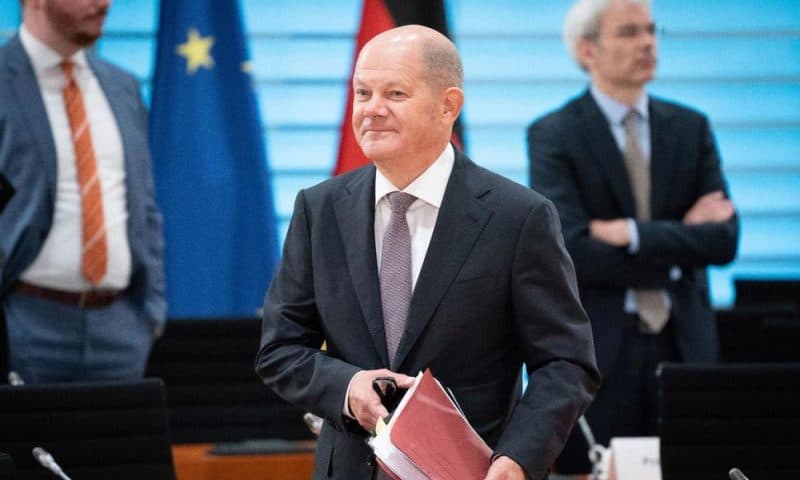Germany’s Cabinet has approved a 2021 budget that foresees significant borrowing for the second consecutive year as Europe’s biggest economy tries to lessen the fallout of the coronavirus crisis.
GERMANY’S CABINET ON Wednesday approved a 2021 budget that foresees significant borrowing for the second consecutive year as Europe’s biggest economy tries to lessen the fallout of the coronavirus crisis.
The budget plan calls for spending of 413.4 billion euros ($485 billion) next year, down from this year’s exceptionally high 508.5 billion euros, a figure which was swollen by spending on rescue packages.
The crisis has derailed the government’s dedication to keeping its budget balanced, long a point of pride. After six years in the black, it is borrowing 217.8 billion euros this year to finance rescue and stimulus packages and cover an expected shortfall in tax revenue.
“We know that the pandemic isn’t over yet,” said Finance Minister Olaf Scholz, noting that the government plans to borrow a further 96.2 billion euros to cover next year’s extra spending.
“We can return to times in which we don’t have to take on so much extra credit,” Scholz said. “We did that before the crisis, and ensured that debt was reduced in relation to economic output, and we will do so again in the future.”
Between 2022 and 2024, Scholz envisions borrowing much smaller amounts as allowed under Germany’s “debt brake,” a set of rules meant to prevent excessive borrowing that were suspended this year and will need to be suspended again for 2021.
Germany’s economy shrank by 9.7% in the second quarter compared with the previous three-month period, easily the worst performance in the 50 years that quarterly GDP figures have been recorded. But that was still one of the less drastic contractions among Europe’s major economies during the wide-ranging coronavirus shutdowns in the spring. France, Italy, Spain and Britain all saw double-digit drops.
For the full year, the government is forecasting a 5.8% decline in gross domestic product.
Germany’s finances were in solid shape before the crisis, which the government has tackled with a wide range of rescue programs and a stimulus package that includes a six-month sales tax cut and spending on next-generation technologies such as artificial intelligence, mobile broadband rollout and the use of hydrogen as a climate-friendly fuel.
The 2021 budget still requires parliamentary approval.

